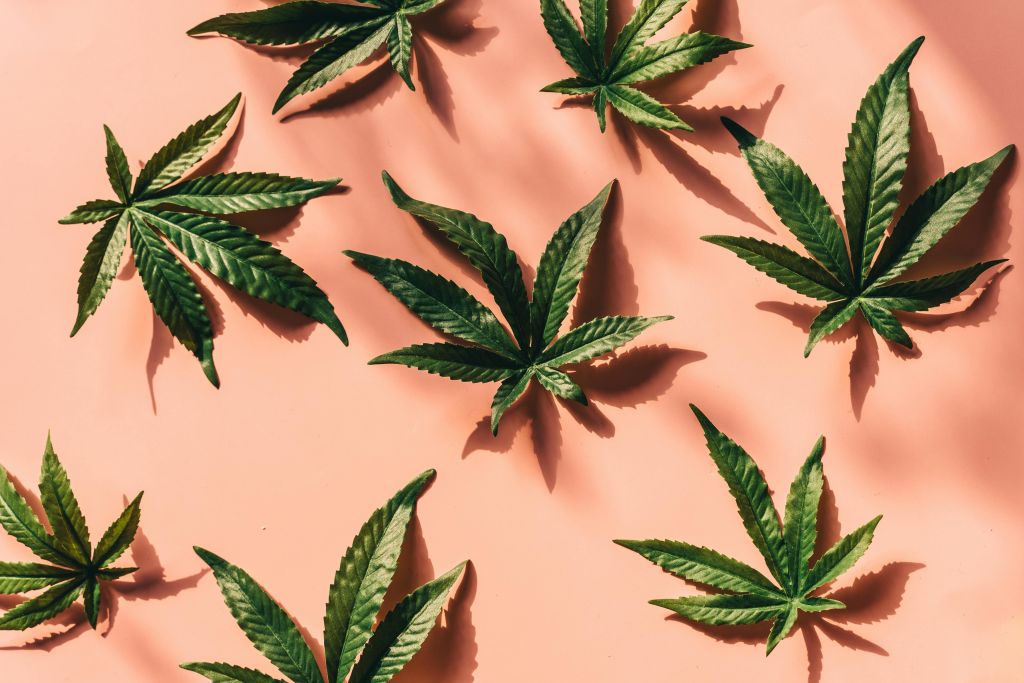
Understanding Cannabinoids
In the ever-evolving world of cannabis, a more profound comprehension of cannabinoids is essential for consumers looking to harness the potential benefits of this complex plant. Let’s journey through the intricate web of CBN, CBD, and CBG, exploring their origins, interactions with the endocannabinoid system, and the diverse effects they unleash on the body and mind.
Definition and Sources
Cannabinoids are the chemical compounds found within the cannabis plant, boasting over 100 distinct variations. The primary sources of cannabinoids are Cannabis sativa (marijuana) and Cannabis sativa L. (hemp), each containing a unique combination of these compounds.
Interaction with the Endocannabinoid System
The body’s regulatory mechanism is the endocannabinoid system (ECS), which influences various physiological processes. The ECS maintains balance by combining receptors, endocannabinoids (produced within the body), and enzymes. When external cannabinoids, such as those from cannabis, interact with the ECS, they can modulate processes like mood, sleep, appetite, and immune response.
Varied Effects on the Body and Mind
CBD (cannabidiol), CBN (cannabinol), and CBG (cannabigerol) exhibit distinct effects on the body and mind. CBD, celebrated for its non-psychoactive nature, offers potential therapeutic benefits such as anxiety relief and anti-inflammatory effects. CBN, with its soothing properties, holds promise as a sleep aid. CBG, often deemed the “mother cannabinoid,” may have anti-inflammatory and neuroprotective properties.
CBN (Cannabinol)
Now, let’s delve into the intricacies of CBN and explore its unique characteristics.
Origins and Extraction
Cannabinol (CBN) emerges as a result of the degradation of THC (tetrahydrocannabinol), the psychoactive component in cannabis. As THC ages or is exposed to oxygen, it transforms into CBN. Additionally, certain cannabis strains naturally contain elevated levels of CBN. Extraction methods involve isolating CBN through processes like distillation or chromatography.
Unique Properties and Potential Benefits
CBN stands out for its potential as a sleep aid due to its soothing effects. Preliminary research suggests that CBN may possess anti-inflammatory and antibacterial properties, opening doors for exploration in various medical applications. As the understanding of CBN evolves, its unique properties may pave the way for innovative therapeutic solutions.
Legal Status and Availability
The legal status of CBN is intricately linked to the overall legality of cannabis. In jurisdictions where cannabis is legal, products containing CBN may be accessible in dispensaries and online. However, staying informed about local regulations, which can vary significantly, is crucial.
Side Effects and Considerations
While CBN is generally well-tolerated, some individuals may experience drowsiness or fatigue. As with any new supplement or medication, it’s advisable to consult with a healthcare professional before integrating CBN into your routine, especially if you are taking other medications.
CBD (Cannabidiol)
Moving on to the widely popular CBD, let’s uncover its diverse uses, therapeutic properties, and legal considerations.
Popular Uses and Products
CBD has grown in popularity, leading to many products catering to various preferences. Consumers have many options, from oils and capsules to edibles and topicals. CBD products are embraced for their potential to alleviate anxiety, reduce inflammation, manage pain, and improve sleep quality.
Therapeutic Properties and Potential Applications
Research on CBD continues to unveil its potential therapeutic applications. Studies suggest that CBD may have antipsychotic effects, making it a candidate for conditions like schizophrenia. Its anti-inflammatory properties have sparked interest in treating conditions such as arthritis, while ongoing research explores its potential in epilepsy management, chronic pain relief, and neurodegenerative disorders.
Legal Considerations and Regulatory Status
CBD derived from hemp plants with less than 0.3% THC is federally legal in the United States. This legality has paved the way for a booming market, with CBD products readily available in dispensaries, health food stores, and online retailers. However, staying informed about evolving regulations is essential, as they may impact the availability and sale of CBD products.
Safety Profile and Potential Side Effects
CBD is generally well-tolerated, with few reported side effects. Some individuals may experience mild effects such as dry mouth, drowsiness, or changes in appetite. As with any supplement, it’s crucial to consider potential interactions with medications. Consulting with a healthcare professional before incorporating CBD into your wellness routine is advisable.
CBG (Cannabigerol)
Now, let’s shine a spotlight on CBG and explore its role in cannabis plants, potential therapeutic effects, availability, and how it compares to CBN and CBD.
Role in Cannabis Plants
Cannabigerol (CBG) is often referred to as the “stem cell” or “mother cannabinoid” because it serves as a precursor to other cannabinoids. Found in smaller quantities compared to CBD and THC, CBG is typically extracted from young cannabis plants before it undergoes decarboxylation and transforms into other cannabinoids.
Potential Therapeutic Effects
CBG has caught the attention of researchers for its potential therapeutic effects. Preliminary studies suggest that CBG may have neuroprotective and anti-inflammatory properties. Some research indicates its potential to promote bone health, reduce intraocular pressure (beneficial for glaucoma patients), and inhibit specific cancer cell growth.
Availability and Sources
As the understanding of CBG deepens, more products containing this cannabinoid may become available. Currently, CBG is present in trace amounts in some cannabis strains, and dedicated CBG products are emerging in the market. Staying informed about reputable sources and product quality is crucial for those interested in CBG.
Comparison with CBN and CBD
In comparison to CBN and CBD, CBG offers a unique set of potential benefits. While CBN is primarily known for its soothing properties and CBD for its versatile therapeutic effects, CBG’s role as a precursor to other cannabinoids and its specific therapeutic potential make it an intriguing option for consumers seeking a different cannabinoid experience.
Key Differences Between CBN, CBD, and CBG
Understanding the critical differences between CBN, CBD, and CBG is crucial for making informed decisions about cannabinoid consumption.
Chemical Composition
CBN, CBD, and CBG each have distinct chemical compositions contributing to their unique properties. While CBN results from the degradation of THC, CBD is a non-psychoactive compound, and CBG serves as a precursor to other cannabinoids. These differences in chemical structure underpin the varied effects of each cannabinoid.
Effects on the Body and Mind
The effects of CBN, CBD, and CBG on the body and mind differ significantly. CBN is renowned for its soothing properties, making it a potential sleep aid. CBD offers a broad spectrum of potential therapeutic effects, from anxiety relief to anti-inflammatory properties. CBG’s effects are still being explored, but early research indicates potential neuroprotective and anti-inflammatory benefits.
Potential Therapeutic Applications
Each cannabinoid holds promise for different therapeutic applications. CBN may aid sleep, CBD is versatile in addressing various conditions, and CBG’s potential extends to neuroprotection and inflammation management. Personal health goals and conditions may guide individuals in choosing the most suitable cannabinoid.
Legal Considerations
The legal status of CBN, CBD, and CBG is contingent on the overall legality of cannabis in a given jurisdiction. While CBD derived from hemp is federally legal in the United States, the legal landscape for CBN and CBG may vary. Staying informed about local regulations is crucial for compliance and accessibility.
Choosing the Right Cannabinoid for You
Armed with knowledge about CBN, CBD, and CBG, consumers can now navigate the cannabinoid landscape with confidence. Selecting the right cannabinoid involves considering personal preferences, health goals, legal aspects, and appropriate dosage and consumption methods.
Personal Preferences and Health Goals
Individuals seeking cannabinoids often have specific health goals in mind, whether it be relaxation, sleep improvement, anxiety relief, or addressing specific medical conditions. Understanding the unique properties of CBN, CBD, and CBG allows consumers to align their choices with their desired outcomes.
Consultation with Healthcare Professionals
Before incorporating any cannabinoid into a wellness routine, consulting with a healthcare professional is paramount. Healthcare providers can offer guidance based on individual health conditions, potential medication interactions, and personalized dosing recommendations.
Consideration of Legal Aspects
Navigating the legal landscape is crucial when choosing cannabinoids. While CBD from hemp is federally legal, CBN and CBG may have different legal statuses. Staying informed about local regulations ensures compliance and a seamless experience.
Dosage and Consumption Methods
Determining the appropriate dosage and consumption method is vital for maximizing the benefits of cannabinoids. Whether choosing oils, capsules, edibles, or topicals, understanding the bioavailability and onset of each method aids in making informed decisions about consumption.
To Summarize: Empowering Your Cannabinoid Journey
As the cannabis industry continues to flourish, the exploration of cannabinoids like CBN, CBD, and CBG unveils a vast spectrum of therapeutic potential. Consumers can make informed decisions tailored to their unique needs and preferences with a comprehensive understanding of these compounds.
Whether seeking the sedative effects of CBN, the versatile benefits of CBD, or the emerging potential of CBG, the cannabinoid landscape is rich with options for enhancing well-being. Remember to consult with healthcare professionals, stay informed about legal considerations, and personalize your cannabinoid journey for a holistic and empowering experience.


